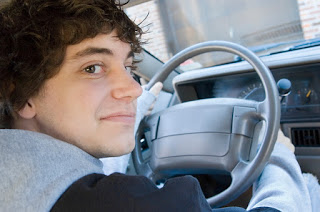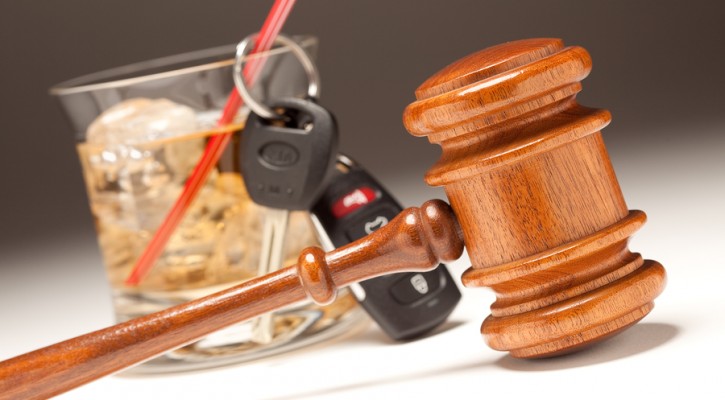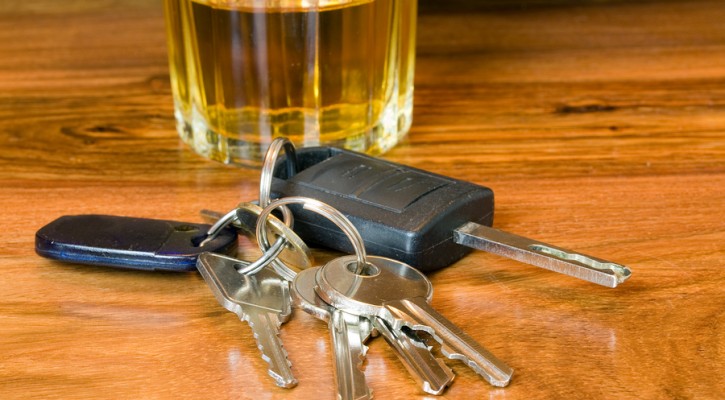Category Archive: Drugs
Can I Get a DUI from My Cough Medicine?
December 9, 2008
Many first-time drivers know that Driving Under the Influence (DUI) of alcohol is extremely dangerous. But they may not realize that the cold medicine they take could cause a level of impairment similar to that of drinking alcohol and in many states, could even result in arrest and conviction of DUI. Though over-the-counter drugs are legal, they are not always harmless.
Many teenagers will take over-the-counter drugs to stop a headache or relieve cold symptoms. Some take larger amounts of over-the-counter drugs to get high and feel good. Of course, this is particularly risky because taking any drug in large quantities results in a higher level of impairment, but it is important to know that even the recommended dosage of an over-the-counter drug can reduce your driving skills. Your coordination, decision-making, and reaction time can be affected.
Over-the-counter medications are required to have printed warnings about side effects, including driving risks. The bad news is, many people don’t read the warning or they don’t believe it is meant for them. If you don’t understand these warnings, ask a pharmacist for help. Remember that many over-the-counter drugs, such as those that provide multi-symptom cold relief, contain several types of drugs in one pill. Select a medication that treats only the symptoms from which you actually suffer.
Here is a partial list of legal, over-the-counter drugs that could impair your ability to drive.
- Allergy medicines/Antihistamines
- Decongestants
- Cough syrups
- Motion sickness medication
- Ulcer medication
- Alcohol-containing medicines
- Caffeine-containing medicines
For example, antihistamines slow down reaction time, impair coordination, and can make you extremely sleepy – so sleepy you can’t even hold your head up. Decongestants, which may be combined with antihistamines in multi-symptom cold medicines, can cause anxiety and dizziness. And though many people who take caffeine-containing medications do so to stay awake, the effects of these drugs don’t last long and can end abruptly, leaving you even more tired than before you took the drug. Caffeine is also found in many headache relievers – check the ingredients list of every medicine you take so you’ll be aware of what you’re taking and can consider the effects before you get behind the wheel.
Some over-the-counter drugs (such as cough medicine, which contains alcohol) may temporarily make you feel more alert and confident when you’re driving. This is because your judgment is impaired, not because you’re a better driver than you were before you took the drug. Drugs can fool you into believing you’re in control of your driving when you are, in fact, impaired. Remember, you are responsible for making sure that you are unimpaired by any substance when you drive.
The effects of some over-the-counter drugs may not be apparent until an hour or two after you take them; never put yourself in the position of getting out on the road only to realize you are impaired. And not everyone reacts the same way to the same drug every time, so you could suffer unexpected side effects even if you’ve taken that particular drug in the past with no problems. Plan ahead. Ask a parent or friend to drive you if you need to go somewhere. Realize that if you’re sick enough to need medication, the symptoms of your illness may cause enough impairment that you shouldn’t drive, even if the medication itself doesn’t cause problems.

Parents Really Can Influence Their Teen’s Driving Behavior
December 11, 2006
Did you know one if five tens drink and drive, or that one in eight admit to smoking pot and driving? Considering that auto accidents are the number one cause of teenage death, it really shouldn’t come as a surprise that teens are indeed engaging in risky behavior while driving, but the actual numbers shocking.
These are two small statistics released by a recent study by Liberty Mutual and SADD, or Students Against Destructive Decisions. The seventh annual Teens Today study shows that while teens are engaging in behavior that leaves them at risk for fatal accidents, parents have the ability to greatly reduce the occurrence of these behaviors in their teens.
According to the study, teens report that they are less likely to drive under the influence of drugs or alcohol if they have parents who set driving expectations and give clear consequences for breaking those rules that are set. Liberty Mutual president, Paul Condrin, points out that “… parents need to know the laws and teen-driving rules of their state, set clear expectations with their teens… and establish and enforce those consequences should those laws be broken or expectations not met.”
It’s good news that the role of parents in their teen’s life, and driving activities, play a large role in whether they make destructive choices that may endanger their lives and the lives of others. Reducing fatal car accidents among teenagers – the number one cause of teenage death – is the primary goal of reducing risky behavior such as drinking and driving, talking on the phone or eating while driving, and having multiple passengers that can be distracting to the driver.
What can a parent do? Some tips offered by Liberty Mutual and SADD include knowing the laws in your state; educating your teen about driving, preferably before they reach the legal driving age; continue monitoring your teen after their receive their license; and set clear rules and enforce them. Teens whose parents establish clear consequences are shown to be less likely to speed, drive with three or more passengers in a car, or talk on a cell phone while driving.
The chairman and CEO of SADD, Stephen Wallace, said it best: “Perhaps most important is to set a good example for young drivers and to reinforce their good driving habits by praising what they are doing right behind the wheel.”

Teenage Drivers See Affects of Drinking & Driving Firsthand
December 5, 2006
Teen drivers are learning firsthand just how damaging “one stupid mistake” can be, especially when that stupid mistake is drinking and driving. Students in Anne Arundel County in Maryland participate in a twice yearly “Schools in the Courts” program, which is presented in partnership with the county District Court and The RESPECT Foundation. School officials believe the few hours the students spend in the courtroom just may be the most important schooling they receive in all of their high school years.
Now in its fifth year, the Schools in the Courts program brings students together for four hours in a courtroom, where they are talked to by guest speakers who generally are people involved in fatal drinking and driving accidents. They are also given the opportunity to view informational videos, such as a documentary following the lives of men and women who were convicted of drinking and driving as young adults, and how their lives unfolded from there. The District Court Judge narrates, and then changes into his robe and allows the young drivers to view justice taking place as suspects are brought through for their sentencing.
The students are reminded that they are in a high risk group for becoming offenders, and on the other side of the law. Statistics from 2005 showed that three in five teens drove too fast, three in five had trouble with aggressive drivers, one in five ran a stop sign, and two in five will be involved in an accident before they graduate high school. The sobering statistics show the importance that these teen drivers make smart decisions, putting themselves, their futures, and others out of harm’s way.
The Judge reminded these students that “one stupid mistake” has taken the lives of many, and will continue to do so, but that at this point in time, right now, they have the choice to make the right decisions and not regret having made that mistake. Those who are facing the consequences of drinking and driving wish they could take it back, erase the mark against their records, but it can’t be done. The lesson learned from Schools in the Courts is that mistake is just not worth it.
Signs of Impaired Driving
June 29, 2006
When you drive, remember that there may be impaired drivers on the road with you.
Sometimes it may not be obvious that the driver is impaired. Never assume that other drivers see you or that they can understand and predict your next course of action. Even if the driver sees you, he or she may not have time to respond, or might make the wrong move.
Watch for signs of impaired driving, such as:
- driving too fast or too slow
- drifting in and out of a lane or straddling lanes
- driving without headlights on at night
- stopping for no apparent reason
- tailgating other drivers
- using the turn signal inconsistently and/or making abrupt turns.
If you see someone driving erratically, increase your following distance and stay a safe distance away from the vehicle.
This post is an excerpt from a recent edition of the Safe Driving Teen Monthly Bulletin. Each month the National Safety Commission publishes the bulletin for teens and parents designed to improve teen driver behavior, attitude, skills, and experience. Subscription Details

One alcohol-related fatal crash every 31 minutes
June 28, 2006
The National Highway Traffic Safety Administration estimates that alcohol was involved in 39 percent of fatal crashes and in seven percent of all crashes in 2004. The 16,694 fatalities in alcohol-related crashes during 2004 represent an average of one alcohol-related fatality every 31 minutes. An estimated 248,000 persons were injured in crashes where police reported that alcohol was present – an average of one person injured every approximately every two minutes.
Drinking alcoholic beverages and using other drugs is widely accepted in our society. Drinking and other drug use is often portrayed as glamorous and sophisticated in the media. Yet the use of alcohol and other drugs can be very costly when combined with driving. Many collisions involve drivers who are under the influence of alcohol or other drugs; the costs include property damage, legal problems, injury and death.
The effects of alcohol use vary from person to person even when the amount of alcohol used is equal. Though the effects and severity effects vary from person to person, alcohol affects everyone who uses it. The demands of the driving task are so great that every driver should be in the best condition possible. A driver cannot afford to increase the risks associated with driving by having his or her skills reduced by alcohol. Even the best drivers are affected if they drink alcohol.
Impaired drivers risk their lives and the lives of others. If you drink and drive, you could injure or kill someone in an alcohol-related collision even if you are not legally intoxicated. The emotional destruction of one impaired-driving collision could extend to people you would never have imagined would be affected. And, of course, the emotional consequences to you as the driver in that crash would be devastating as well.
This post is an excerpt from the June edition of the Safe Driving Teen Monthly Bulletin. Each month the National Safety Commission publishes the bulletin for teens and parents designed to improve teen driver behavior, attitude, skills, and experience. Subscription Details
